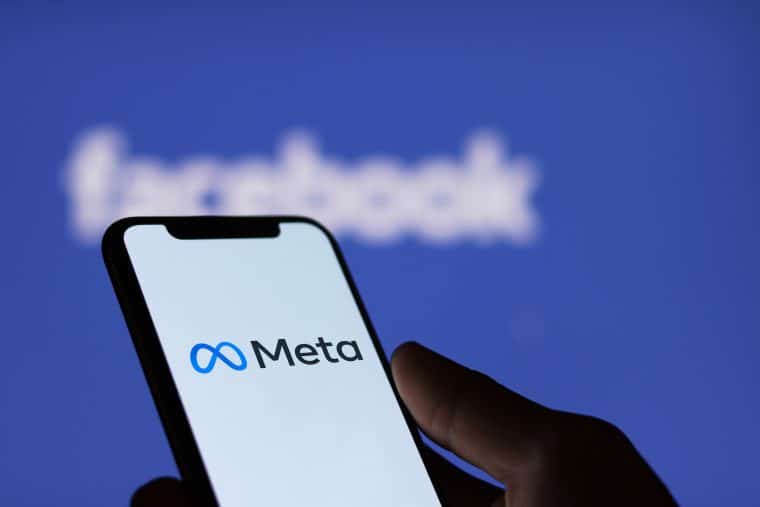
The US Federal Trade Commission(FTC) is coming at Meta for the third time concerning the tech giant’s alleged violation of the $5 billion data privacy settlement it made with the regulator back in 2020.
Meta Violates Data Privacy Orders Again
According to FTC, Meta failed to fully comply with the order it received concerning users’ data privacy. The company is accused of misrepresenting the data access it gave to app developers and misleading parents about their ability to control the contacts with whom their children communicate through its Messenger Kids app.
“Facebook has repeatedly violated its privacy promises. The company’s recklessness has put young users at risk, and Facebook needs to answer for its failures,” said Samuel Levine, Director of the FTC’s Bureau of Consumer Protection.
The FTC claims that while Meta’s Messenger Kids application has parental controls that limit the people with whom kids can interact, there is a quick and easy workaround for such limitations. For instance, through group video calls and chats, restricted contacts can easily bypass whitelists which also violates the Children’s Online Privacy Protection Act (COPPA).
According to the COPPA rule, ”operators of websites or online services that are directed to children under 13 must notify parents and obtain their verifiable parental consent before collecting personal information from children,” said FTC.
The FTC tasked an independent assessor to review Meta’s privacy program in relation to the 2020 order requirements after which the assessor discovered several weaknesses and loopholes which they listed in the Order to Show Cause.
According to the findings, Meta broke the terms of both the 2012 and 2020 orders by continuing to grant app developers access to users’ private information despite having stated in 2018 it would revoke this access if users hadn’t used those apps in the previous 90 days.
Up until the middle of 2020, FTC says Facebook let third-party app developers access that user data under certain situations.
Due to the several violations, the FTC proposes changes to the 2020 order, such as strengthening the existing requirements, which would apply to Facebook and Meta’s other services such as Instagram, WhatsApp, and Oculus.
The Commission is looking to effect a blanket prohibition on Meta against making profits off of data from children and all users under the age of 18. While the company may use the data for security purposes or to provide other services, Meta will not be able to commercialize that data even after the user turns 18.
The proposed changes will also pause Meta’s release of any other social media product or services without the review of an assessor to confirm their compliance with the privacy order.
The company will additionally be required to ensure any company it intends to merge with or acquire fully complies with the orders.
FTC is further proposing Meta be limited in its use of facial recognition technology. The social media company will be required to seek consent from the users for any future use of the technology.
“We Will Vigorously Fight This Action,” Says Meta
Prior to this, the FTC has prosecuted Facebook twice for allegedly failing to safeguard users’ privacy. The first order prohibiting the firm from misrepresenting its privacy practices was secured in 2012 after the Commission filed the first complaint against Facebook’s data privacy practices in 2011.
However, in a later lawsuit, the Commission alleged that within months of the first FTC order’s approval, Facebook had broken it by presenting misleading representations which contributed to the Cambridge Analytica crisis.
In order to resolve allegations that it had broken the FTC’s first order, Facebook agreed to a second order in 2019 that would go into force in 2020. The 2020 order in addition to onboarding an independent assessor also required Facebook to pay a $5 billion civil penalty.
While Meta has 30 days to respond to the allegations and propositions made by FTC, the company’s spokesperson Andy Stone posted a statement on Twitter saying the FTC’s claims were a political stunt that was unprecedented and Meta would be fighting the order.
Meta's statement on the FTC's political stunt. pic.twitter.com/XEPHvriKFY
— Andy Stone (@andymstone) May 3, 2023
Related articles:
- Global Smartphone Sales Q1 2023 Data: Here are the Key Takeaways
- 57% of Users Download Apps Recommended in In-App Ads
- Apple Reports New Record on Quarterly Services Revenue, PC Shipments Fall Sharply
What's the Best Crypto to Buy Now?
- B2C Listed the Top Rated Cryptocurrencies for 2023
- Get Early Access to Presales & Private Sales
- KYC Verified & Audited, Public Teams
- Most Voted for Tokens on CoinSniper
- Upcoming Listings on Exchanges, NFT Drops